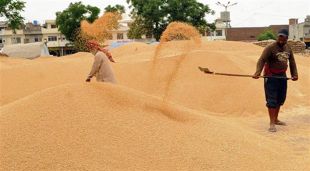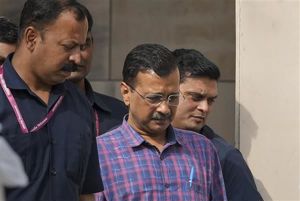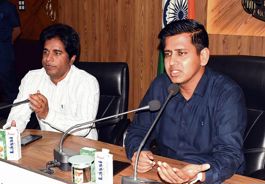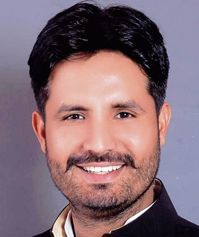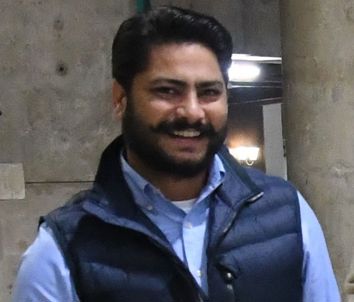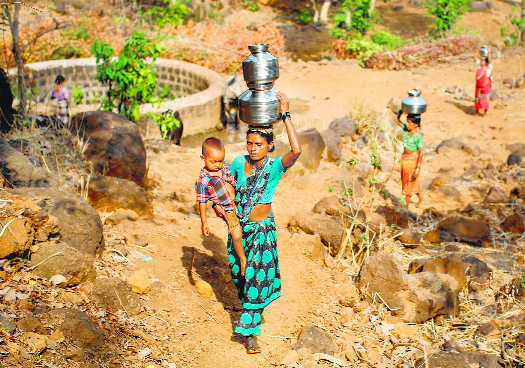
Do not tamper with institutions without fully appreciating their role. Reuters
Pawan Kumar Bansal
Governance is serious business and undoubtedly a challenging task. Water governance is more so because of the ever-increasing challenges in the water sector and associated complexities and sensitivities. Water governance cannot be clearly defined but it includes political, socio-economic processes and institutions to address wide-ranging issues related to water management.
The processes for reform should factor in the present scenario and future expectations. The government’s decision to restructure the Central Water Commission (CWC) and Central Ground Water Board (CGWB) should be seen in this light.
However, a cursory look at the recent Order constituting a committee on restructuring CWC and CGWB for “Optimal development of water resources in the country in the backdrop of integrated water resources management” does not convincingly convey such an impression. On the contrary, one gets the uncomfortable feeling that the government is perhaps planning to dilute the vital professional role of these two important technical organisations which have, over the years, substantially helped in water resources development in the country.
The Order downplays the functions of both CWC and the CGWB, saying that ``CWC is generally confining its manpower resources to according techno-economic clearance (TEC), whereas CGWB…. has conducted its activities in an unsystematic manner”. This is a strong indictment indeed.
CWC is associated with schemes for control, conservation and utilisation of water resources for various purposes. It also undertakes investigations, construction and execution of schemes, if required. Often, it is engaged for design consultancy and has a noteworthy record in flood forecasting. It has also earned respect for total professionalism while investigating and reporting on conflicting claims of river-basin states on a host of disputes.
To say that ``CWC confines its manpower to according TECs’’” is incorrect and repudiates the good work it does. The TEC is an advisory committee of Ministry of Water Resources (MoWR) that considers detailed project reports for this purpose.
CGWB has the responsibility to develop and propagate technologies and implement policies for the scientific and sustainable development of groundwater resources. It has compiled hydro-geological maps based on data collected from field studies and exploratory drilling depicting various major aquifer groups and their characteristics. The surmise that CGWB has ``conducted its activities in an unsystematic manner’’ is wholly unfounded.
The constraint, if any, is that of funds. Budgetary allocation for has plummeted from Rs. 12,961 crores in 2013-14 to a mere Rs. 2,000 crores in 2015-16 including that for the new Pradhan Mantri Krishi Sinchai Yojna (PMKSY). Also, a paltry Plan allocation of Rs. 30 crore (Rs.100 crore in 2012-13) for R & D will affect research activities required to address growing challenges in water sector and the likely impact of climate change on water resources.
The announcement of PMKSY raised hopes of a substantial increase in public investment in irrigation. But the outcome so far, is unsatisfactory. In the first year of its commencement, a mere Rs. 4 crores was spent.
Members of the committee on restructuring are all eminent persons with rich expertise in their fields. However, there is a serious flaw due to non-representation of state governments and the absence of experts from various related disciplines. Also, the opinion expressed by the members from time to time creates a fear that the Committee may end up recommending the jettisoning of major hydel power or multipurpose projects. This fear is accentuated when the present Order is read with an earlier missive that imposes a blanket ban on CWC approving or designing any structure ``till a committee already set up for the purpose of determining e-flow submits its report’’.
Environmental flows (e-flows) are now one of the key elements in water resources planning and management for sustainable development. E-flow for a river system must not be compromised for market-driven growth, but should it disrupt our water needs and uses? With rising demand for water, it is difficult to visualise a situation where the reservoirs have not stored adequate water in monsoons for use during the longer non-monsoon period.
Transfer of water from water rich basins to deficit basins (Interlinking of Rivers - ILR) is another related issue. The National Water Policy 2012 states that ``inter-basin transfers are not merely for increasing production but also for meeting basic human need and achieving equity and social justice’‘. There may be no surplus water available in any river basin or sub-basin for transfer if e-flow as defined by the Secretary, MoWR is endorsed. The government has to clarify its present thinking on ILR in this context.
It is time the government issues a broad discussion paper on water resources development and management and solicits the views of a wide spectrum of experts rather than just a few chosen by it.
The Order and the letter have willy-nilly created a situation of uncertainty. That must not prolong. We talk of China; there is a news that it is planning many new dams on Yangtze and Yarlung Zangbo (upstream of the Great Bend) before it enters India as (Siang and) Brahmaputra. Presently our installed hydro-power capacity is 41,267 MW while the potential is estimated to be 1,50,000 MW. How do we achieve this target? Certainty not by diluting the important professional role of our expert institutions. Based on the recommendations of Administrative Staff College of India, a consortium of IITs and various committees had prepared a detailed proposal for restructuring CWC . The government has to just pick up that
(The writer is a former Union Minister)





















